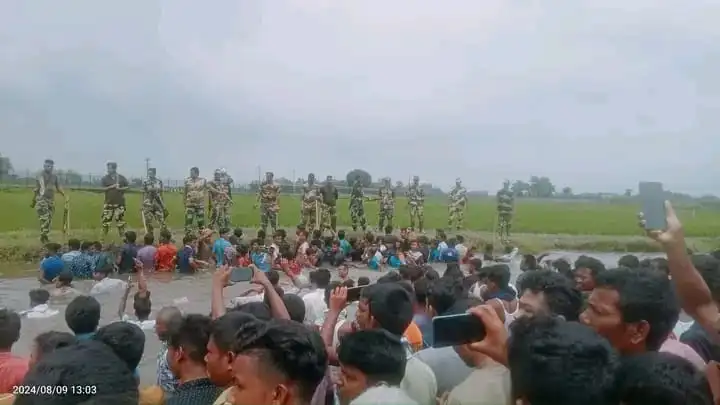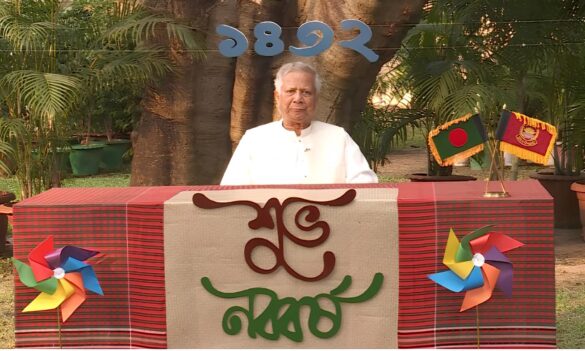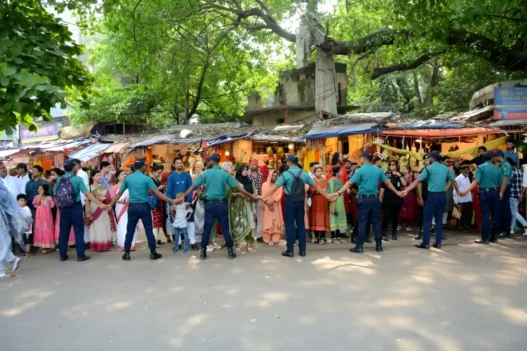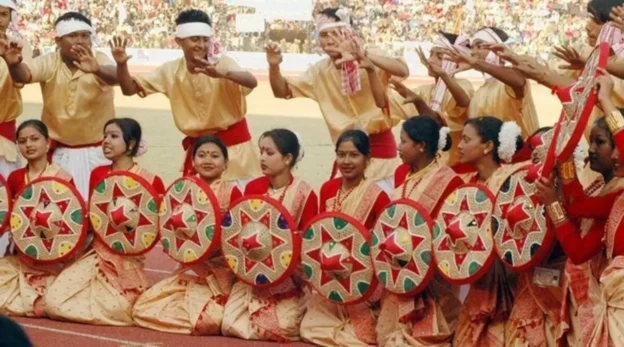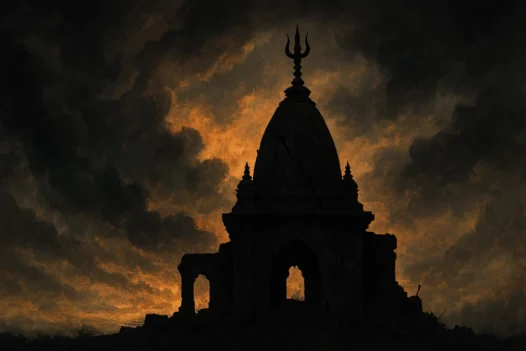Nearly 8,000 people including women and children from Hindu community gathered at Genduguri border of Lalmonirhat district amid ongoing violence against minority communities in the neighbouring country seeking refuge in India on Friday morning.
“We have gathered in the border to seek refuge in India as the Islamic fanatics looted valuables from our houses and businesses, and also threatened to kill us. No one is coming to save us. What is our fault? Have we sinned by being born minority?”, said Hiralal Roy, president of Lalmonirhat district Puja Udjapon Parishod.
“A number of Hindu people gathered on Friday morning to cross the border. They are concern for their security following ongoing violence but we assured them for their safety”, said Mohammad Ullah, deputy commissioner of Lalmonirhat district.
Contacted, Lt. Colonel Nofazzel Hossain, commanding officer of Lalmonirhat 15 BGB battalion said, “I was present there yesterday where people from minority community want to cross the border following allegation of attacking and looting their houses after the overthrow of Prime Minister Sheikh Hasina.”
They refused to return home despite requests from both BGB and BSF, he said, adding, “later they returned home after failing to cross the border.”
“At least 11 houses of Hindu community were burnt to ashes at Purboshardubi Hindu village under Hathibandha upazilla of Lalmonirhat”, said Hiralol Roy.
“After Sheikh Hasina resigned from the post of Prime Minister, minorities were attacked in at least 45 districts. The attacks on the Hindu community in Bangladesh have been systematic over the decades,” said Rana Dasgupta, General-Secretary of the country’s Hindu, Buddhist and Christian Unity Council.
“There is an orchestrated attempt to grab Hindu houses and lands in Bangladesh and they are being forced to leave the country.”
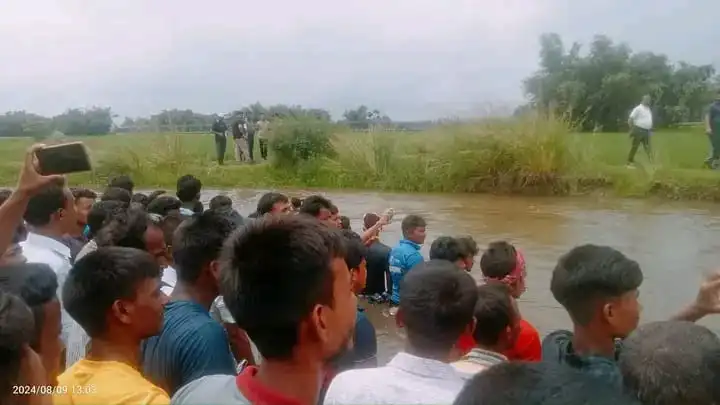
In many places, minorities are under siege. Somewhere, the people around them are threatening them. With this, the land grabbing of the minority communities also continuously unabated, he said.
“I fear there may be a wave of emigration among the minorities. And if this situation continues, it will not be good for any country in the subcontinent, not only for Bangladesh”, he added.
“There was such a destructive group among the protesters from the beginning. They were in the midst of the movement. Then understanding the opportunity, now they are revealing their nature. This evil group wants minorities not to stay in this country”, said Mr Gupta adding,“Their target is not only the minority community, but also the government establishment and above all all the achievements of the liberation war of this country. That’s what I think of the targets of the attack.”
Minority women were also assaulted, and at least two Hindu leaders were killed, said local journalist.
The Indira Gandhi Cultural Centre located in Dhaka’s Dhanmondi area was also damaged by the unruly mob, said the locals.
At least 235 people have been killed since Hasina’s resignation on Monday, taking the death toll in the protests to 560.
Early on Thursday, about 300 Bangladeshis had assembled at a border point near India’s Jalpaiguri district.
The two countries have longstanding cultural and business ties and India played a key role in the 1971 war with Pakistan which led to the creation of Bangladesh.
Earlier this week, Sheikh Hasina was ousted from power, igniting widespread unrest across Bangladesh. A violent mob stormed her official residence in Dhaka, ransacking the property and looting her belongings. Under intense pressure from the military and given just 45 minutes to step down, Hasina was forced to flee to India, where she has been granted temporary refuge until she secures asylum in another country.
Bangladesh was plunged into a crisis in July after mass protests began against a government job reservation for relatives of the 1971 Bangladesh Liberation War veterans.
Despite the supreme court scaling back the quota in late July, the protests quickly turned into a mass uprising against Hasina following the crackdown on demonstrators, which left more than 300 people, including students and police officers, dead.
Bangladesh shares a 4,096km border with India, the fifth-longest in the world. A group of nearly 600 people from Bangladesh were stopped from entering at a checkpoint in West Bengal’s Jalpaiguri district a day after Hasina fled.
Source: The Chittagong Hill Tracts

